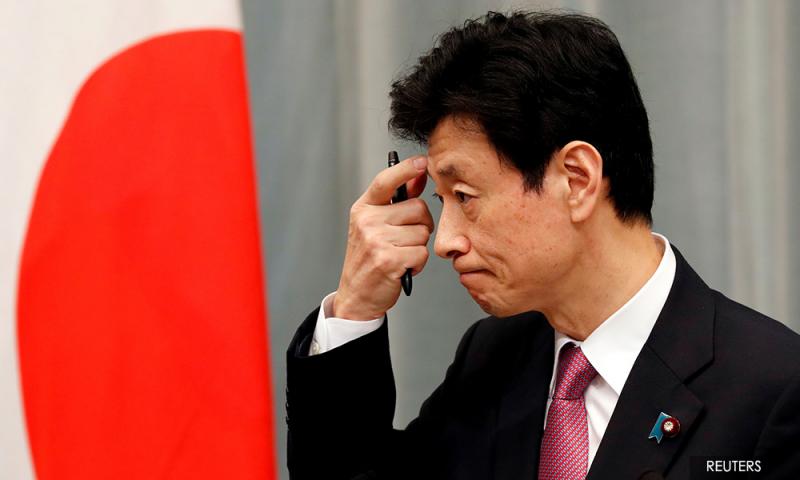US, Japan launch task force on rights, labour standards in supply chains
The United States and Japan on Friday launched a new task force to promote human rights and international labour standards in supply chains and said they would invite other governments to join the initiative.
US Trade Representative Katherine Tai signed a memorandum on the initiative in Washington with Japan's Economy, Trade and Industry Minister Yasutoshi Nishimura (above).
Japan's Yomiuri Shimbun newspaper this week cited Japanese officials as saying the move was spurred by issues such as alleged forced labour of minority Muslims in China's Xinjiang region and that Japan would seek to promulgate regulations that Washington has strengthened to tackle such problems.
Tai and Nishimura said they would invite other governments to join the effort.
"The United States and Japan cannot do this alone," Tai said at the ceremony. "To make this work, we must partner with all relevant stakeholders - worker organisations, businesses, and civil society - to bring about lasting and meaningful change. We must also invite other governments to join us as we push ahead to safeguard the dignity of workers everywhere."
The signing came ahead of a visit to Washington next week by Japanese Prime Minister Fumio Kishida for talks expected to focus on shared concerns about China's growing might and other pressing international issues.
USTR said Tai and Nishimura met bilaterally to discuss the next steps for the task force, as well as Japan's priorities during its presidency of the Group of Seven nations.
They also discussed Japan's ongoing review of its biofuels policies, and Tokyo's concerns about electric vehicle tax credits included in the Inflation Reduction Act of 2022, with Tai underscoring the importance of combating climate change by investing in clean energy technologies, USTR said.
Nishimura on Thursday called for a "new world order" to counter authoritarian regimes that have been bolstered by post-Cold War free trade and economic interdependence.
A senior US official told Reuters last year that US allies appeared committed to following Washington's lead in banning forced labour goods from Xinjiang.
The United States' Uyghur Forced Labor Prevention Act (UFLPA) took effect last year to cut US imports of products from Xinjiang, where Washington accuses China of committing genocide against ethnic Uyghurs and other Muslims, and herding them into camps. Beijing denies abuses in Xinjiang.
Tai cited a recent International Labor Organization's estimate that 28 million people globally were still subjected to forced labour worldwide.
"We must address forced labour at each stage of our supply chains," she said. "Whether it's the cotton in the clothes we wear or metals in the cars we drive, such abuses threaten to undermine the very foundations of our system."
- Reuters
RM12.50 / month
- Unlimited access to award-winning journalism
- Comment and share your opinions on all our articles
- Gift interesting stories to your friends
- Tax deductable

 Reuters
Reuters